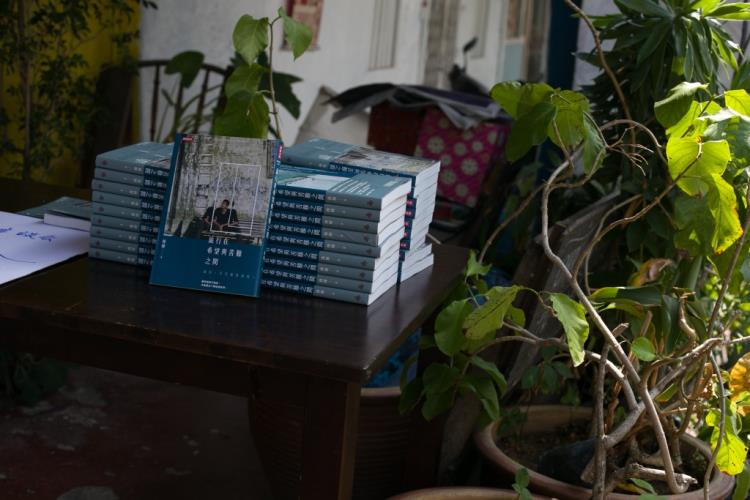World traveller and columnist. Author of Travel Between Hope and Pain, co-founder and chief editor of IronShoe Travel Channel.

Before I embarked on the round-the-world trip, I already had a plan to write and publish travel narratives. I believe that most travellers are on the same wavelength. I kept writing when I was on the road, and the journal of my travels is enough to convert into two books. Therefore, when my journey was more than halfway through, I started looking for a publisher with help from friends. Finally, I found China Times Publishing Co. in Taiwan and the editors were happy with my work. Last year, my debut travelogue Travel Between Hope and Pain was published, which is about my journey to Central Asia and the Middle East. The sequel to it will be out in September and the focus is my journey to Europe, Central and South Americas.
A lot of my friends asked: “As a Hongkonger, why don’t you get your book published in Hong Kong but opt for Taiwan instead?”
With respect to travel writing, I am, in fact, not the first Hongkonger to get published in Taiwan. Chow Chung Wah’s A Journey that Starts From the End of the Silk Road, Ng Mun Mun’s Daydream Traveller, and several books by Susanna Cheung Chui Yung were all published in Taiwan long before my book was done. This year, Riki Ueda’s Quit Your Job, Hit the Road is out; and as far as I know some Hong Kong travellers are also planning to get their works published in Taiwan. I opted for Taiwan mainly because there are readers out there. Taiwan has a population of 20 million. With a strong reading culture, Taiwan naturally has more readers than Hong Kong. This is evidenced by the size of a book’s first print run. In Hong Kong, most books’ first print run is 1,000 copies (some can be as few as 500 copies). It’s rare to sell well enough to go to a second printing or more. On the contrary, in Taiwan, the initial print run is more than 2,000 copies and subsequent printings are not unusual.
There is another reason why I opted for Taiwan: readers in Taiwan are more ready to accept serious literature and text-heavy books. In other words, readers in Taiwan are more willing to read different genres of books because the number of readers in Taiwan is more and the readership is of higher quality. My book is a more serious form of travelogue and I believe that Taiwanese readers are more ready to read this type of books.
If a writer wants to venture into the Taiwanese market, why doesn’t he or she get the work published in Hong Kong and ship the books to Taiwan instead? Apart from the quality of the work, promotion and sales channels are also vital to the success of the sale of a book. In Taiwan, with the support of the publisher, it’s easier to get media exposure and to arrange book talks to promote the book. More importantly, bookshops in Taiwan give priority to books published locally, and naturally will put those books to better display stands and display longer. Therefore if you target the Taiwanese readership, it’s natural to get your book published in Taiwan.
I’ve chosen Taiwan instead of China, where the readership is larger, because of the following reasons. Firstly, both Taiwan and Hong Kong use traditional Chinese characters. Even though the usage sometimes can be different, most of the time we have no difficulties to understand each other. Therefore, even a book is published in Taiwan, it can be sold directly in Hong Kong and it’s not necessary to convert it to another language or version. Secondly, if a work contains politically sensitive content, censorship in China can be a real pain in the arse. By comparison with China, Hong Kong and Taiwan’s freedom of the press is a real advantage.
Having said that, the publishing industry is waning no matter in Hong Kong or in Taiwan. It’s difficult to publish a book with high quality of content and at the same time saleable. A lot of my friends feel pessimistic about the future of the publishing industry. But I still believe that a society needs good books. Perhaps the reading pattern would change, but a good writer can eventually get his story told to his readers. Let’s keep up the good work everyone.